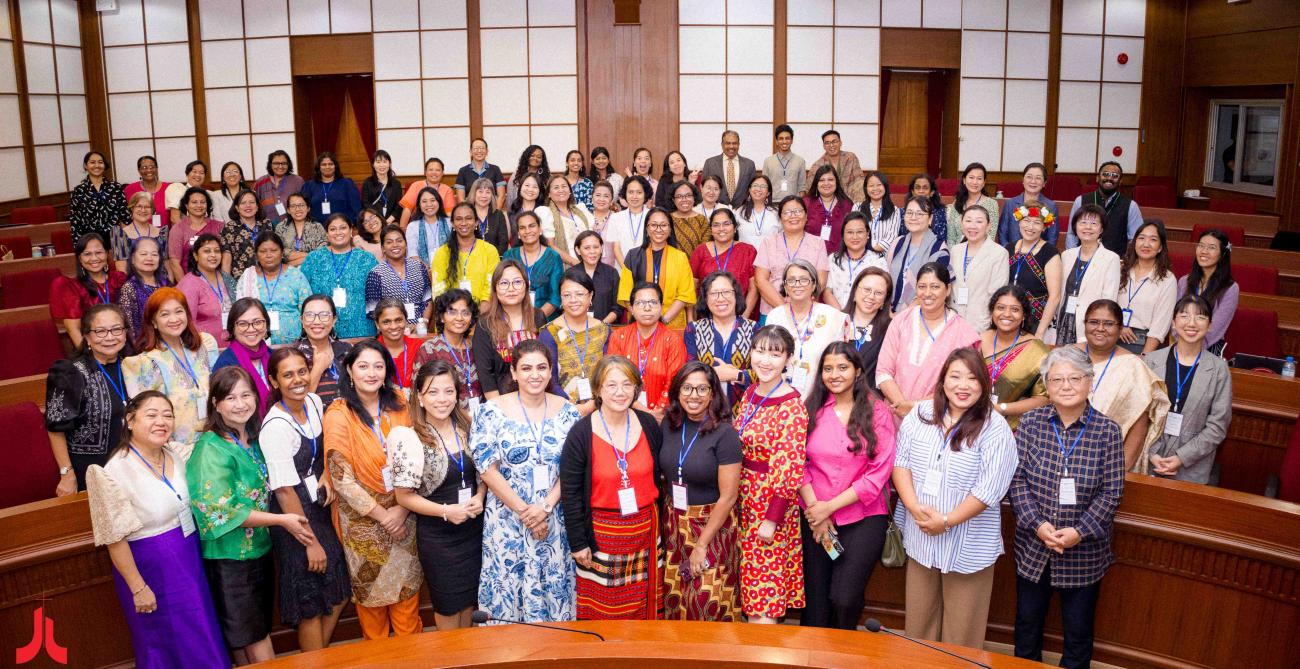Ensuring gender equality is a shared moral and social responsibility, says CCA General Secretary at the opening of the Asian Ecumenical Women’s Conference

Participants of the Asian Ecumenical Women’s Conference
Chiang Mai, Thailand: Reaffirming that gender equality is a shared moral and social responsibility, Christian Conference of Asia (CCA) General Secretary Dr Mathews George Chunakara stressed that when women’s rights are violated, human dignity of all is diminished.
While delivering the opening address at the Asian Ecumenical Women’s Conference (AEWC), the CCA General Secretary stated that when women’s rights are threatened, the universality of human rights is compromised. Although the world has undergone profound changes since the 1995 Beijing Conference, the full and equal participation of women and girls remains one of the most powerful strategies for achieving gender equality, prosperity, peace, and stability in societies worldwide.
Organised by the CCA under the theme “Towards Upholding the Dignity and Rights of Women in Asia”, the Asian Ecumenical Women’s Conference began at Payap University in Chiang Mai this morning with the participation of eighty women representatives from across Asia, including from churches, national ecumenical organisations, church leaders and theologians.
The CCA General Secretary noted that, despite global progress, violence against women persists in every region. Women remain under-represented in leadership positions across both the public and private sectors and continue to be marginalised. While many countries have established legal protections for women’s rights, deep-rooted social norms and cultural barriers still hinder their effective implementation.
Dr Chunakara further highlighted the persistent and emerging challenges confronting women, particularly in Asia, where hard-won gains are being eroded. The resurgence of authoritarianism and militarisation continues to silence women and girls, while fundamental freedoms and human dignity are increasingly under threat. “Advancing democracy and human rights is essential to unlocking the potential of women and girls in the twenty-first century, yet the world is witnessing a worrying trend of growing threats to democratic rights and freedoms”, he added.
Touching on the impact of digital transformation, Dr Chunakara cautioned that while the world is now more technologically advanced and interconnected than ever, technology has also deepened inequality, revealing a stark digital gender divide. “Technological innovations have created new opportunities for women and girls, but they have also introduced new forms of harm, including online safety risks, and gender bias in artificial intelligence (AI)”, he said.
Dr Chunakara also raised concern over the rise of technology-facilitated gender-based violence (TFGBV), a modern scourge.
Ms Vernie Yocogan-Diano, a member of the Episcopal Church in the Philippines and a human rights defender, delivered the thematic address.
Ms. Yocogan-Diano described how women’s dignity in Asia continues to be eroded through displacement from land and resources, starvation wages, and shrinking democratic spaces under authoritarian and militarised regimes.
“These ‘situations of hell’ persist because their structural causes have become more pervasive. The unholy trinity of globalisation, militarism, and fundamentalisms, continues to reinforce and perpetuate patriarchy, driving a neoliberal economic system that lies at the root of the stagnation of women’s rights and the erosion of women’s dignity,” Ms Yocogan-Diano stated.
Elaborating on Asia as a region where women drive actions for the human rights of women and peoples and the defence of dignity, she said that women’s rights movements in Asia and the Pacific are guided by principles of intersectionality, intergenerational solidarity, cross-sectoral collaboration, and inclusive participation.
Ms. Yocogan-Diano emphasised that building solidarity and collaboration within our churches, the ecumenical circle, and broader communities, locally, nationally, and across borders, is fundamental for creating strong networks, both within and beyond faith-based circles. While recognising the power of feminist and women’s rights movements, she stressed that these movements cannot exist in isolation; solidarity and cooperation with other social justice and people’s movements are essential for building united and sustained collective power.
Photos of the Asian Ecumenical Women's Conference - Day 1 can be found here:










